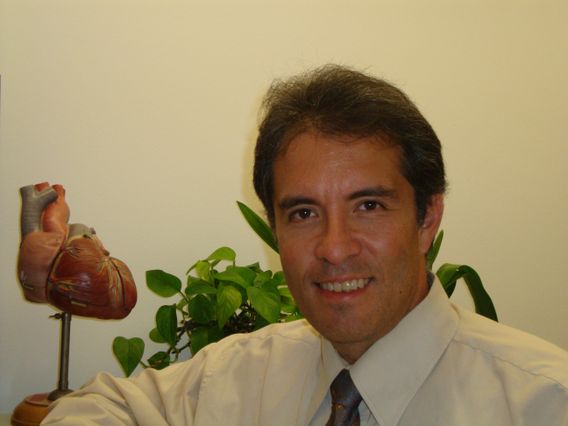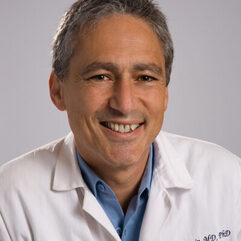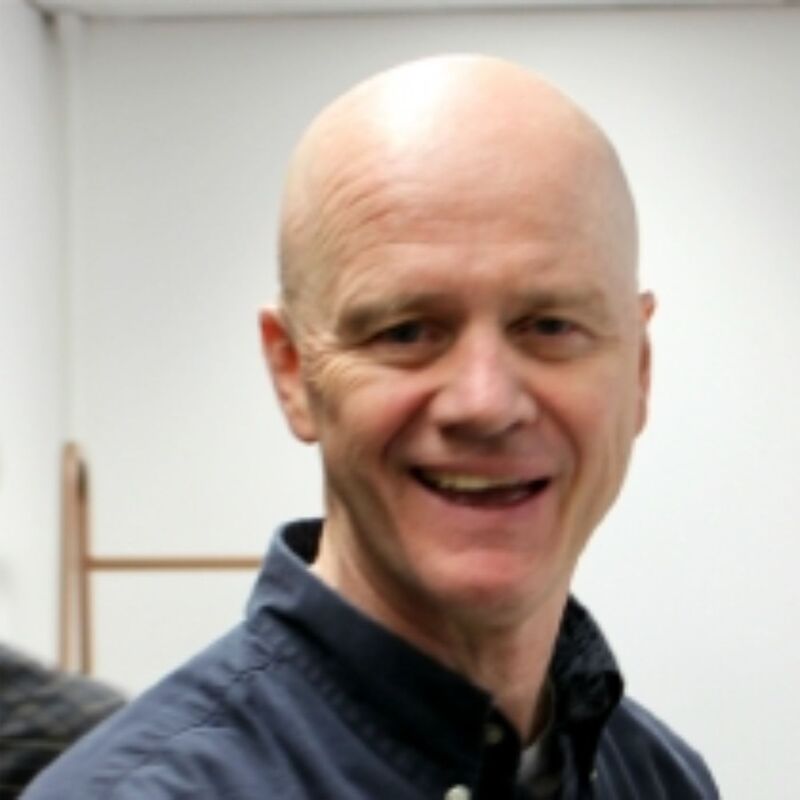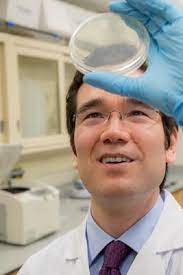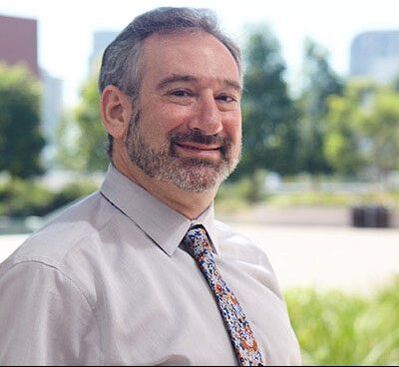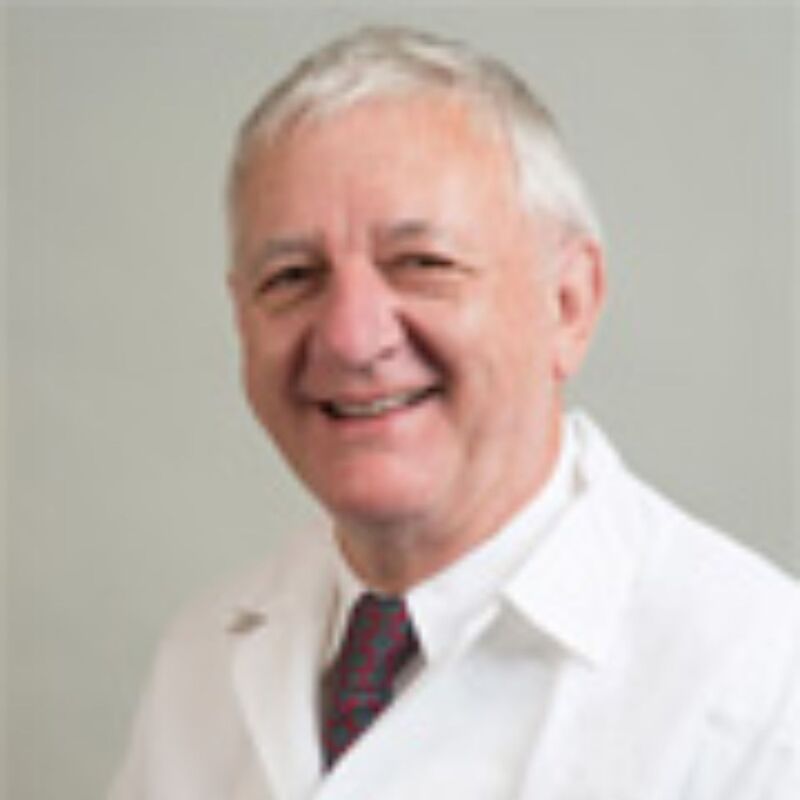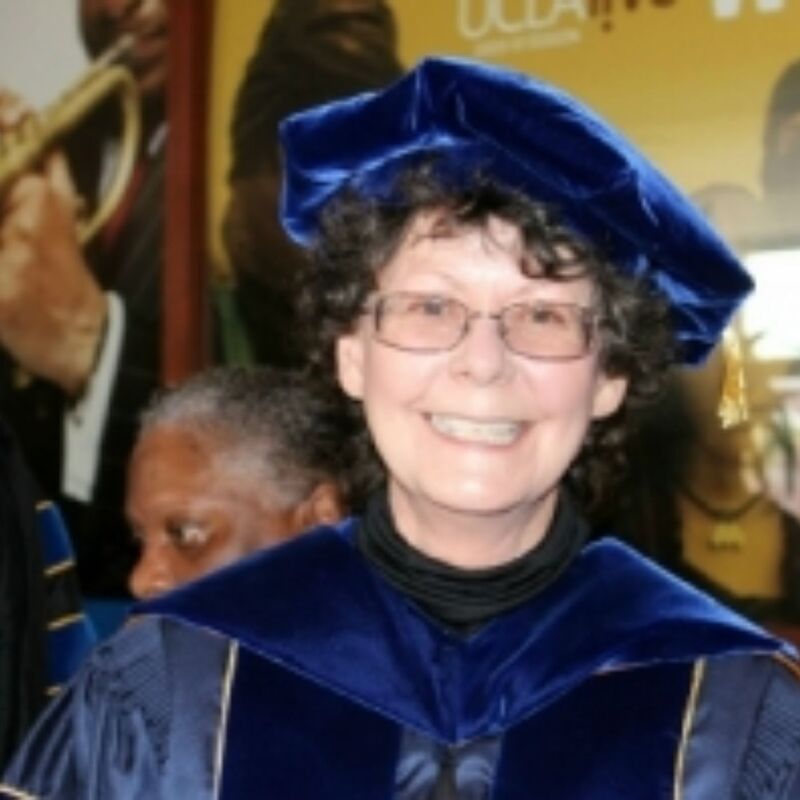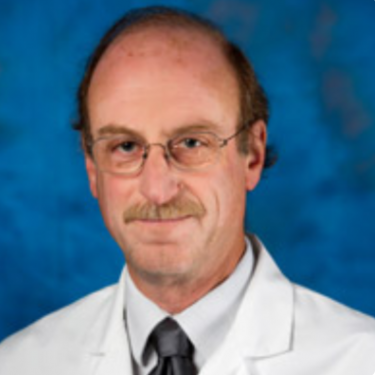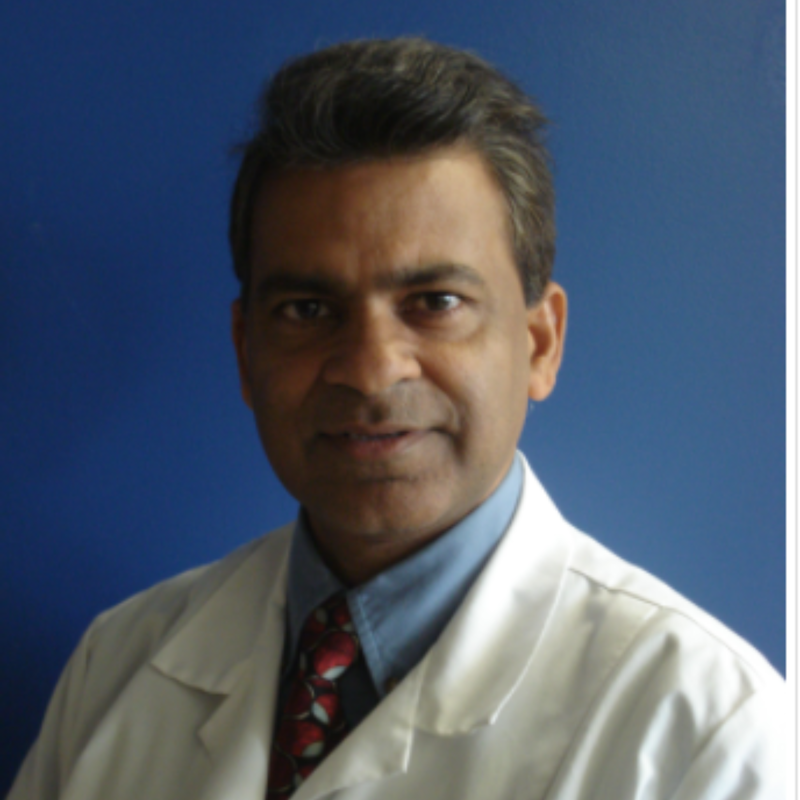Faculty Bios |
|
*Patrick Allard, Ph.D.
Society and Genetics, Environmental Health Sciences - Full Biography The Allard lab uses the nematode C. elegans to uncover mechanisms of germ cell maintenance and differentiation. By developing and applying novel genetic, cellular and molecular tools in the nematode, we attempt to gain fast mechanistic insight on germline genes and pathways that are disrupted during environmental exposure. We are also interested in exploring environmental influence on other aspects of cellular differentiation and function. Anne M. Andrews, Ph.D.
Psychology and Biobehavioral Science - Full Biography Dr. Andrews' research is centered on the investigation of therapeutics, drugs of abuse, neurotoxins, and environmental factors to probe the molecular basis of serotonin system function associated with the etiology and treatment of mood and anxiety disorders. *Jesus A. Araujo, M.D., Ph.D.
Medicine, Environmental Cardiology - Full Biography Dr. Araujo's research program focuses on the study of genetic and environmental factors involved in vascular oxidative stress and atherosclerosis, including the dissection of molecular mechanisms responsible for the cardiovascular toxicity of air pollutants. *Paul Boutros, Ph.D., M.B.A.
Human Genetics and Urology - Full Biography As a Professor in the Departments of Human Genetics and Urology, Paul’s research focuses on personalizing therapy for cancer by developing novel statistical methodologies. He leads the ICGC-TCGA DREAM Somatic Mutation Calling Challenge that is setting global standards for analyzing cancer genomic data, and drives programs in cancer genomics, data science and biomarker translation. *Jeff Bronstein, M.D., Ph.D.
Neurology - Full Biography Jeff Bronstein's clinical interests include the management of Parkinson's disease (PD) and other movement disorders, surgical treatment of PD, and developing new therapies for patients. Dr. Bronstein's research interests include the study of the causes of PD (environmental and genetic) using cell and zebrafish models as well as population-based studies. Michael Collins, Ph.D.
Environmental Health Sciences - Full Biography Research in Dr. Collins' laboratory is concerned with aspects of developmental toxicology or teratology. The focus of the research is to determine the mechanisms by which human teratogens induce congenital malformations. The model system that is utilized is the purple sea urchin, Strongylocentrotus purpuratus. Ben Glasgow, M.D.
Pathology and Laboratory Medicine - Full Biography Dr. Glasgow's laboratory investigates the role of proteins in the molecular mechanisms of tear film formation. The interactions of tear proteins in ocular surface diseases are studied using a range of biophysical, biochemical, molecular and microscopic techniques. Current focus is centered on tear lipocalin, a promiscuous transporter of hydrophobic ligands in the human tear film. Ming Guo, M.D., Ph.D.
Neurology and Molecular & Medical Pharmacology - Full Biography Dr. Guo’s research lab investigates molecular mechanisms of the two most common neurodegenerative disorders, Alzheimer’s and Parkinson’s disease. Mutations in PINK1 and PARKIN lead to inherited forms of Parkinson’s disease. Her lab is one of the first two labs worldwide to report the function of PINK1, and to discover that PINK1, a mitochondria-localized serine-threonine kinase, and PARKIN, an E3 ubiquitin ligase, act in a common genetic pathway to regulate mitochondrial integrity and mitochondrial quality control. *Oliver Hankinson, Ph.D.
Environmental and Molecular Toxicology Ph.D. Program Chair, and Department of Pathology and Laboratory Medicine - Full Biography Dr. Hankinson's research focuses on the mechanism of carcinogenesis by polycyclic aromatic hydrocarbons (found in cigarette smoke and smog), dioxin (a pollutant), & related compounds, using molecular biology, cell culture & animal model systems. Elissa Hallem, Ph.D.
Microbiology, Immunology, and Molecular Genetics - Full Biography Dr. Hallem's research focuses on the sensory behaviors of parasitic and free-living nematodes, and lies at the interface of neurobiology and parasitology. The goals of her research are to understand how human-parasitic worms use sensory cues to locate hosts to infect, as well as understanding the role of metalloproteases in mediating skin penetration in Strongyloides. Jonathan Jacobs, M.D., Ph.D.
Digestive Diseases/Gastroenterology - Full Biography Dr. Jacobs studies mechanisms by which air pollution, diet, and genetic factors impact the intestinal microbiome to promote inflammatory bowel disease, obesity, and cancer. His research program utilizes a combination of multi'omics human studies, gnotobiotic mouse models, and microbiota/epithelium co-cultures. *David Krantz, Ph.D.
Psychiatry and Biobehavioral Sciences - Full Biography Dr. Krantz uses Drosophila to study how changes in the function of neurotransmitter transporters may influence synaptic transmission and behavior, and the role of pesticides in these processes. *Shaily Mahendra, Ph.D.
Civil and Environmental Engineering - Full Biography Dr. Mahendra's research areas are focused on microbiomes in natural and engineered systems, applications of molecular and isotopic tools in environmental microbiology, environmental toxicology of nanomaterials, and biotransformation of water contaminants. William McBride, Ph.D., D.Sc.
Radiation Oncology - Full Biography Dr. McBride's research focuses on degradation of proteins through the proteasome system and the inhibitory effects of exposure to radiation, and other agents. *Megan McEvoy, Ph.D.
Microbiology, Immunology & Molecular Genetics - Full Biography The McEvoy laboratory is focused on developing an understanding of how organisms handle metal ions. Organisms can face highly varying levels of metal ions through their environment or diet, and metal ion concentrations in cells must be carefully regulated. William Melega, Ph.D.
Molecular and Medical Pharmacology - Full Biography Dr. Melega's research is focused on molecular mechanisms of basal ganglia neuroplasticity associated with neurodegenerative diseases and drug abuse. Analytical techniques include a wide range of biochemical, molecular and behavioral approaches. Specific projects include: 1- Biochemical studies on the acute and long term effects of methamphetamine. Frank Pajonk, M.D., Ph.D.
Radiation Oncology/Division of Molecular and Cellular Oncology - Full Biography Dr. Pajonk's research is focused on radiation effects of the proteasome and cancer stem cells. Suzanne E. Paulson, Ph.D.
Atmospheric Sciences - Full Biography Dr. Paulson's group is investigating generation of reactive oxygen species by ambient particulate matter, mapping air pollution in urban microenvironments, and investigating aerosol optical properties. Srinivasa Reddy, Ph.D.
Molecular and Medical Pharmacology - Full Biography Dr. Reddy's laboratory studies physiological and pathological phenomena mediated by arachidonic acid (AA) and its metabolites, which are implicated in a number of disease processes including acute and chronic inflammation, cardiovascular disease, immune response, arthritis, inflammatory bowel disease, respiratory disorders and cancer. *Virender Rehan, M.D.
Department of Neonatology - Full Biography Dr. Rehan’s research interests include lung development and injury-repair, with a special emphasis on lung injury repair following perinatal exposure to insults such as hyperoxia, infection, volutrauma, and nicotine. The studies in his lab have provided novel insights into the pathogenesis of Bronchopulmonary Dysplasia (BPD), Childhood Asthma, and Chronic Lung Disease that have led to the creation of innovative strategies to prevent/treat these conditions. *Beate Ritz, M.D., Ph.D.
Epidemiology and Environmental Health - Full Biography Dr. Ritz's primary research interests are the effects of occupational and environmental toxins such as pesticides, ionizing radiation, and air pollution on chronic diseases including neurodegenerative disorders (Parkinson's disease), cancer, and adverse birth outcomes. Dr. Ritz is also the President of the International Society of Environmental Epidemiology (ISEE). Wendie Robbins, Ph.D.
Nursing/ Environmental Health Sciences - Full Biography Dr. Robbins' research focuses on the molecular mechanisms of environmentally induced germ cell genetic damage and the development of biomarkers to detect and measure this damage in human sperm cells. Michael Roth, M.D.
Medicine - Full Biography Dr. Roth's research investigates the effects of inhaled cannabis, including purified delta-9-THC as its primary psychoactive cannabinoid, as mediators of lung inflammation, airway injury, and pre-cancerous changes. He also studies the manner in which cannabinoids interact with the immune system and the expression of specific cannabinoid receptors by immune cells. Felix Schweizer, Ph.D.
Neurobiology - Full Biography The Schweizer laboratory uses electrophysiological and optical tools to investigate the dynamic molecular mechanisms underlying the regulation of neurotransmitter release. They are particularly interested in the role of protein ubiquitination in regulating neuronal excitability and synaptic transmission. Ram Raj Singh, M.D.
Pathology/ Environmental Health Sciences - Full Biography His research on immune pathogenesis of lupus and autoimmune diseases and mechanisms of tolerance has been recognized by over a dozen national and international awards, including Carol Nachman Prize, one of the largest international prize in experimental rheumatology that he received from the President of Germany. *Xia Yang, Ph.D.
Integrative Biology and Physiology - Full Biography Dr. Yang's research focuses on identifying key regulatory genes and gene networks that mediate the effect of genetic and environmental perturbations on metabolic diseases using high-throughput genomic and computational approaches. Dr. Yang is also interested in applying similar approaches to pharmacogenomic and toxicogenomic studies to understand the genomic architecture of drug metabolism, drug response, and toxicity. *Zuo-Feng Zhang, Ph.D.
Epidemiology - Full Biography Dr. Zhang's research interests focus on molecular genetic epidemiology of cancers of the lung, bladder, prostate, esophagus, stomach, liver, head and neck cancer, cervix, and AIDS-related malignancies. His research team is working on the role of mutations, methylations, and polymorphisms of genes in the development of cancer. The major focus of his research group is to evaluate the main effects of these genes on the risk of cancers and to assess potential gene-environment interactions. *Tian Xia, M.D. Ph.D.
Nanomedicine - Full Biography One focus of Dr. Xia's research is the safety of nanomaterials using high throughput screening and multi-omics. This includes single-cell RNA sequencing and metabolomics to link the physicochemical properties of these materials to their adverse effects. Another focus area is on the design of functional nanomaterials for biomedical applications including vaccine adjuvants, antimicrobials, and mRNA or peptide nanoparticles that can induce immune tolerance to treat allergies and autoimmune diseases. |



